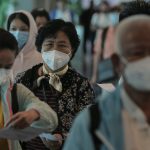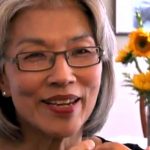Connecting to Our Legacy of Resistance During COVID-19
By Shomya Tripathy, ACRS Director of Policy and Civic Engagement
May is Asian American Pacific Islander Heritage Month, a time when we usually come together to recognize and celebrate our history in this country. As the month comes to a close, it feels like an odd time to be reflecting on our past. Likewise, it’s even harder to envision the future. The COVID-19 health crisis has pulled our focus to the present, where the immediate needs of AAPI communities are more evident and visceral than ever. From health disparities to economic injustice to racism, the pandemic has exacerbated the deepest inequities of our society, and our communities are struggling to survive.
It is difficult to look away from what is happening now – it emphatically shows these systems are not working, especially for those who need it most. For AAPI communities, safety net programs are not accessible to vulnerable immigrants. Financial relief is not available to the 60,000 undocumented AAPIs in our state. And AAPIs too easily become the scapegoats of fear and ignorance. These critically remind us that building a different future is integral to our survival and always has been. AAPI Heritage Month gives us a moment of pause to remember that creating a different world for the future is tied to our legacy of resistance in this country.
This month and every month, we honor Larry Itliong, who led a historic protest of Filipino farmworkers in California that became known as the Delano grape strike of 1965-1970. Itliong, who immigrated to the United States at a young age and worked as a farmer, organized thousands of Filipino farmworkers to march off the Delano vineyards and demand better wages and working conditions. This strike lasted five years and became known as one of the foundational moments of the West Coast Labor movement. Itliong also fought for the creation of Agbayani Village, a retirement home for elderly Filipino farmworkers.
Itliong, who isn’t often given the recognition he deserves, said: “Because in that Constitution, it said that everybody has equal rights and justice. You’ve got to make that come about. They are not going to give it to you.” Itliong believed in a world where farmworkers across racial lines deserved dignity and respect for their work, and he fought to make that dream a reality.
This month and every month, we honor Yuri Kochiyama, who laid a foundation for building movements firmly rooted in solidarity. She lived an apolitical life until she was incarcerated along with 120,000 other Japanese Americans in Camp Jerome, Arkansas, after the bombing of Pearl Harbor. Kochiyama’s political awakening led to her learning about and fighting for Black liberation under the leadership of Malcolm X. Her activism sought to find the connections between struggles, protesting both anti-Black racism locally and the Vietnam War abroad. She advocated for reparations and reconciliation for the incarceration of Japanese Americans. Later in her life, she spoke passionately against the racial profiling of Arabs, Muslims, and South Asians after 9/11. Her life’s work was a testament to the possibility of multi-racial and cross-issue movement building. Kochiyama taught us if our systems aren’t working for some of us, they aren’t working for any of us.
This month and every month, we honor the Asian American youth who angrily led the protest against Seattle’s Kingdome in 1972. Worried about the impact the stadium would have on the residents of the Chinatown/International District (CID), these youth disrupted the opening event of the Kingdome until they were chased out by police. This protest led to the subsequent march from Hing Hay Park to the Department of Housing and Urban Development, where protesters demanded resources and funds for the preservation of the CID. The organizing efforts of those young people laid the groundwork for a long history of anti-displacement and community development work in the CID that’s still very prevalent today. Young people continue to harness the power of anger and breaking Asian stereotypes as the passive and compliant model minority.
This month and every month, we honor the many AAPIs who have not been recognized for their labor. We honor our queer and trans activists. We honor our Pasifika activists, Muslim activists, disabled activists, undocumented and unafraid activists. We honor our moms and all the women and femmes who paved a way for us.
Civil rights activist Grace Lee Boggs once said: “People are aware that they cannot continue in the same old way, but are immobilized because they cannot imagine an alternative.” Boggs dedicated her life to racial justice, Black power, and the struggle of working-class people. We honor and uplift her lifelong commitment to the practice of imagining a more just world. She knew this was no easy task and still recognized this practice as being part of the very core of our liberation.
As our present situation continues to unfold in uncertain ways, it feels harder to change the world from the safe distance of our homes. But we can still honor our tradition of resistance by taking time to practice the small things because building a better world takes practice and effort. It takes practice to read about our elders and movements and to engage in seemingly trivial things like voting and the census. It takes practice to build solidarity with those who experience oppression differently than us. Most importantly, it takes practice imagining a world beyond the present moment, but in doing so, our acts of resistance large and small transform the now into the just society we envision for the future.






